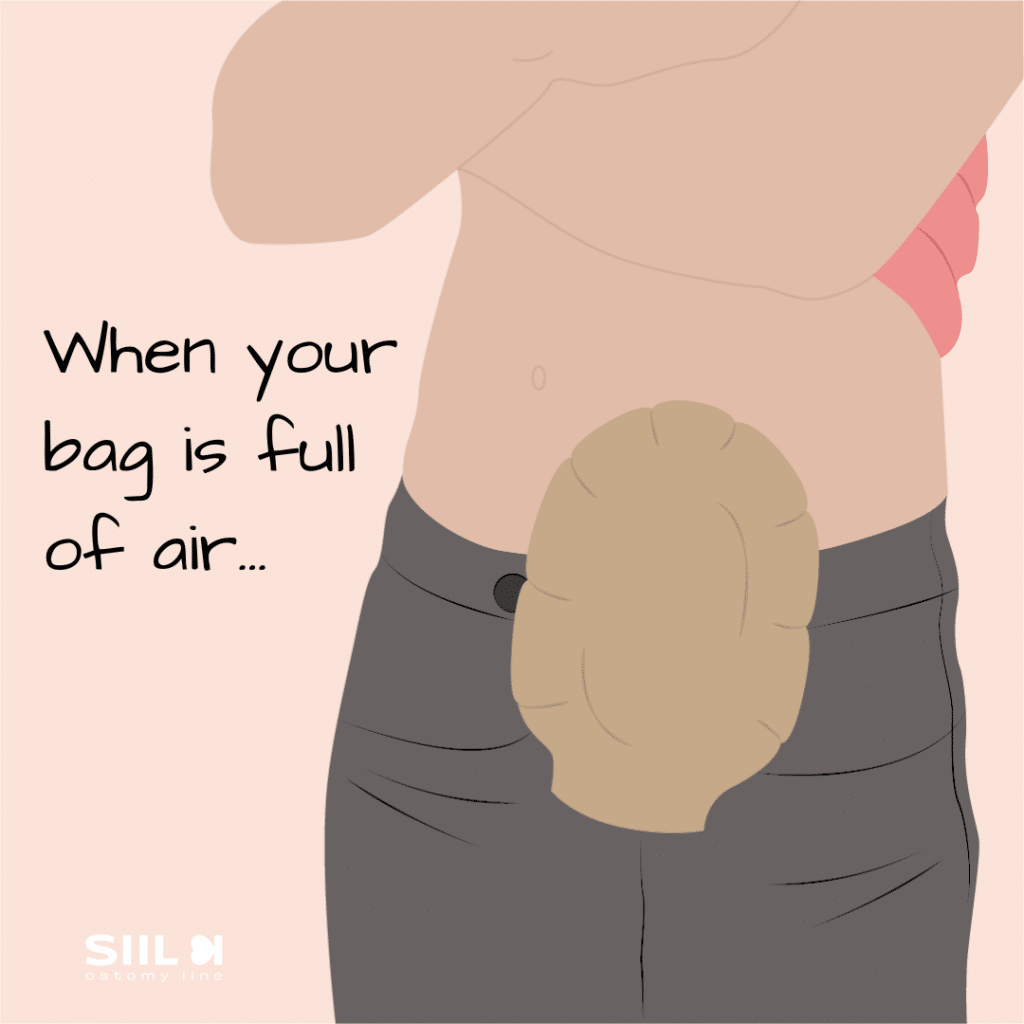
FREE DELIVERY IN USA OVER $120
FREE DELIVERY IN EUROPE OVER $100
Ostomy Odor can be a concerning issue for many individuals living with an ostomy. It’s important to understand that managing ostomy odor is not only possible, but there are several effective strategies to do so. First and foremost, ensuring a proper fit of your ostomy pouch is crucial. A well-fitting pouch not only prevents leaks but also helps contain any odors.
Furthermore, diet plays a significant role in controlling ostomy odor. Certain foods and drinks, like fish, eggs, and alcohol, can increase the odor, while others like parsley, yogurt, and buttermilk might help reduce it. It’s all about finding the right balance that works for your body.
Additionally, there are products specifically designed to target ostomy odor. These include deodorants that can be added to the ostomy pouch and filters that can be attached to the pouch to neutralize odors. It’s essential to explore different products and find the one that best suits your needs.
Remember, dealing with ostomy odor is a common part of living with an ostomy, and with the right approach, it can be effectively managed. It’s always advisable to consult with your healthcare provider for personalized advice and tips tailored to your specific situation.
Dealing with an ostomy bag smell can be a significant concern for those who use an ostomy bag. However, it’s important to note that controlling ostomy bag smell is entirely achievable with the right techniques and products. One of the key factors in managing ostomy bag smell is proper maintenance and care of the ostomy bag. Regular cleaning and timely replacement of the bag are essential to prevent any unwanted odors.
Another effective method to manage ostomy bag smell involves dietary adjustments. Certain foods and beverages are known to cause more pungent smells. By identifying and limiting these foods, individuals can significantly reduce ostomy bag smell. It’s a process of trial and error to find what works best for you.
Moreover, there are specialized products designed to combat ostomy bag smell. These range from pouch deodorants that can be applied inside the ostomy bag to filter caps that help neutralize odors before they escape. Exploring these options can be very beneficial in finding an effective solution to control ostomy bag smell.
Living with an ostomy bag doesn’t mean having to endure unpleasant smells. With the right approach and a bit of experimentation, ostomy bag smell can be effectively managed, contributing to a more comfortable and confident daily life. As always, consulting with a healthcare professional can provide additional personalized strategies and advice.
An ostomy deodorizer is an essential product for many individuals with an ostomy, designed to effectively combat and neutralize odors in ostomy pouches. The use of an ostomy deodorizer can significantly improve quality of life and comfort, making daily activities and social interactions more comfortable.
When choosing an ostomy deodorizer, it’s important to consider various types available. Liquid deodorizers can be added directly into the ostomy pouch, while others come in the form of tablets or sachets. These products work by neutralizing the odor inside the pouch, rather than just masking it, providing a more effective and long-lasting solution.
Incorporating an ostomy deodorizer into your ostomy care routine can be a game-changer. It’s a simple yet effective step that can make a big difference in managing odors. Most ostomy deodorizers are user-friendly and can be used with different types of ostomy pouches, making them a versatile choice for many users.
Remember, while an ostomy deodorizer is a great tool in managing odors, it’s also important to maintain good ostomy hygiene practices and to regularly empty and change your pouch as needed. For personalized recommendations and advice on the best ostomy deodorizer for your needs, consulting with a healthcare professional is always advisable. They can guide you towards the right products and techniques to ensure your comfort and confidence while living with an ostomy.
Managing colostomy odor is a common concern for individuals with a colostomy. It’s important to understand that while colostomy odor can be challenging, there are effective ways to control it. One of the first steps in managing colostomy odor is ensuring that the colostomy bag is fitted correctly and is sealed properly. A good seal not only prevents leaks but also helps in minimizing any odors.
Diet plays a pivotal role in controlling colostomy odor. Certain foods, like garlic, onions, and some spices, can increase the odor, whereas others like cranberry juice and yogurt may help reduce it. It’s beneficial to monitor your diet and identify foods that might be contributing to stronger colostomy odor.
In addition to dietary changes, there are specialized products aimed at reducing colostomy odor. These include deodorants that can be used inside the colostomy bag and filters that can be attached to the bag, helping to neutralize odors effectively.
It’s important to remember that dealing with colostomy odor is a manageable part of living with a colostomy. With appropriate care, diet management, and the use of odor-control products, it is possible to significantly reduce any unpleasant smells. Consulting with healthcare professionals can also provide valuable advice and personalized recommendations for managing colostomy odor.
If your colostomy bag smells, it’s essential to address this issue to ensure comfort and confidence in your daily life. Dealing with colostomy bag smells can be challenging, but there are several effective strategies you can implement to manage and reduce these odors.
Firstly, proper care and maintenance of your colostomy bag are crucial. Regularly changing the bag and ensuring it is securely sealed can help prevent leaks and contain odors. A well-fitting colostomy bag is key in minimizing colostomy bag smells.
Diet plays a significant role in the odor of output in your colostomy bag. Some foods, like fish, eggs, and certain vegetables, can increase colostomy bag smells, while others may help reduce it. Keeping a food diary can help you identify which foods might be contributing to stronger odors.
Moreover, consider using an ostomy deodorizer. These products are specifically designed to neutralize odors inside the colostomy bag. They come in various forms, such as liquids, gels, or tablets, and can be a highly effective solution in managing colostomy bag smells.
It’s also advisable to stay well-hydrated and practice good hygiene. Regular cleaning around the stoma site and using odor-barrier products can also contribute to reducing colostomy bag smells.
Remember, experiencing colostomy bag smells is a common issue, and with the right approach, it can be effectively managed. Don’t hesitate to discuss this with your healthcare provider for personalized advice and recommendations. They can guide you in choosing the right products and techniques to help manage colostomy bag smells efficiently.
An ostomy deodorant is a specially formulated product designed to neutralize and reduce odors in ostomy pouches. For many individuals with an ostomy, using an ostomy deodorant is a key part of their daily routine, significantly enhancing comfort and confidence.
There are various types of ostomy deodorants available, including liquids, gels, and sprays. These products are specifically designed to be safe for use in ostomy pouches and are effective at eliminating odors, not just masking them. When choosing an ostomy deodorant, it’s important to consider the type that best fits your lifestyle and needs.
Using an ostomy deodorant is quite simple. For liquid deodorants, a few drops are typically added to the pouch each time it’s emptied or changed. This helps to neutralize odors as they occur. Gel and spray deodorants are used similarly, ensuring that the inside of the pouch is treated to reduce odors effectively.
In addition to using an ostomy deodorant, maintaining proper hygiene and regular pouch changes are crucial in managing odors. Also, being mindful of certain foods that might contribute to stronger odors is beneficial.
It’s always advisable to consult with a healthcare professional when selecting an ostomy deodorant. They can provide recommendations based on your specific situation and needs, ensuring that you find the most suitable and effective product. Remember, an ostomy deodorant is a valuable tool in your ostomy care arsenal, helping you lead a comfortable and confident life.
An ostomy odor eliminator is an invaluable product for individuals with an ostomy, as it is specifically designed to target and neutralize odors in ostomy pouches. Utilizing an ostomy odor eliminator can significantly improve the quality of life by providing confidence and comfort in managing ostomy-related smells.
There are different forms of ostomy odor eliminators available, including liquids, gels, and sprays. Each type is formulated to effectively neutralize odors within the ostomy pouch. When selecting an ostomy odor eliminator, it’s important to consider the form that best suits your lifestyle and preferences.
Incorporating an ostomy odor eliminator into your ostomy care routine can be straightforward. For instance, liquid odor eliminators can be added directly to the pouch after each emptying, effectively neutralizing smells as they arise. Gels and sprays work similarly, ensuring the inside of the pouch is treated to manage odors effectively.
Besides using an ostomy odor eliminator, maintaining good hygiene, regular pouch maintenance, and being mindful of your diet are also key in controlling odors. Certain foods might increase pouch odors, so it’s helpful to identify and adjust your diet accordingly.
Consulting with healthcare professionals when choosing an ostomy odor eliminator is highly recommended. They can offer personalized advice and suggest products that align with your specific needs, ensuring optimal odor control. Remember, an ostomy odor eliminator is a crucial tool for anyone managing an ostomy, aiding in leading a more comfortable and confident life.
An odor eliminator for colostomy bag is a specialized product designed to tackle and neutralize odors in colostomy pouches. For individuals with a colostomy, incorporating an odor eliminator into their routine can greatly enhance their comfort and confidence in managing their colostomy.
When choosing an odor eliminator for colostomy bag, there are various types to consider, such as liquids, gels, or sprays. Each of these is formulated to effectively address the odors in the colostomy pouch. It’s important to select the type that best fits your needs and preferences.
Using an odor eliminator for colostomy bag is typically straightforward. Liquid odor eliminators can be added to the pouch after each emptying, neutralizing odors from the output. Gels and sprays are used in a similar manner, ensuring the inside of the pouch is treated to control odors effectively.
In addition to using an odor eliminator, maintaining proper hygiene with your colostomy bag is essential. Regular cleaning and timely replacement of the bag help in minimizing odors. Diet also plays a significant role; certain foods can increase odor, so monitoring and adjusting your diet can be beneficial.
Consulting with healthcare professionals is always a good idea when selecting an odor eliminator for colostomy bag. They can provide tailored advice and recommendations based on your specific situation, helping you choose the most effective product. Remember, using an odor eliminator for colostomy bag is a key step towards a more comfortable and worry-free experience with your colostomy.
Managing Ostomy Odor
1.
Introduction
Living with an ostomy can be a challenging experience, especially when dealing with issues like odor. Odor from ostomy bags, commonly referred to as colostomy or ostomy smell, can be a significant concern for many individuals. This article provides practical tips and insights into managing ostomy odor effectively.
2.

Ostomy odor, often described as colostomy bag odor or ostomy bag smell, is a common concern for those with an ostomy. The smell can emanate from the ostomy bag itself or the stoma, leading to discomfort and self-consciousness.

Effective Management Strategies
Maintaining a Secure Seal: Ensuring that your ostomy pouch is properly sealed to your skin is crucial. A secure seal prevents leakage, which can contribute to odor. Regularly checking and adjusting the fit of your ostomy pouch can help in maintaining an odor-free environment.
Using Deodorizing Products: Products like ESENTA Lubricating Deodorant are designed specifically for ostomy care. These products can help neutralize odors in the ostomy bag, providing a sense of confidence and comfort.
Regular Pouch Maintenance: Emptying or changing your ostomy pouch frequently is vital in managing odor. A clean and well-maintained pouch significantly reduces the chances of unpleasant smells.
Gelling and Odor Control Sachets: Products like Diamonds™ Gelling and Odor Control Sachets are useful in managing ostomy smell. These sachets help solidify liquid contents in the ostomy bag while reducing gas and odor, leading to a more comfortable experience.
3.
Lifestyle Adjustments for Odor Control
Dietary Considerations
Certain foods can exacerbate ostomy bag smells. Being mindful of your diet and recognizing which foods increase odor can help in managing this issue. Foods like fish, eggs, and certain vegetables are known to contribute to colostomy smell.
Staying Hydrated
Hydration plays a pivotal role in reducing ostomy bag odor. Drinking ample water helps in diluting the urine, which can decrease the intensity of the odor.
4.
Regular Bag Changes
Changing the ostomy bag regularly can prevent the buildup of odors. It’s important to follow a routine and change the bag before it becomes too full.
Use Ostomy specialized clothing
Wearing specialized clothing for ostomates such as Ostomy belt, Ostomy underwear, or Ostomy Swimwear will help to control odors as good quality garments for ostomates use antibacterial and anti-odor fabrics at the same time you have an extra layer that controls odors while holding and protecting the ostomy bag.
Use of Odor Eliminators
There are various products available that specifically target colostomy bag odor. These can be added directly to the ostomy bag and work by neutralizing odors effectively.
Consulting Healthcare Professionals
In cases where ostomy odor becomes unmanageable, consulting with healthcare professionals is advisable. They can offer personalized advice and solutions based on individual needs.
5.
Managing ostomy odor requires a combination of proper hygiene, the right products, lifestyle adjustments, and professional advice. By incorporating these strategies, individuals can effectively control ostomy smells, leading to a more comfortable and confident life.
Share this with a friend:
DISCOVER OSTOMY ACCESSORIES:
DISCOVER MORE ARTICLES ABOUT OSTOMY

